INTERNATIONAL NETWORK OF TRADITIONAL PLAY COMMUNITIES
In Belgium, Vlaamse Traditionele Sporten vzw (Vlas), an umbrella uillsation federating 22 traditional sports communities in the Flanders region, as well as Sportimonium and Workshop Intangible Heritage (WIE) Flanders. In Cyprus, the Folklore Association “Ktima”, an umbrella for the preservation of the TGS in Pafos. The communities of Istria participated in drafting the application and in choosing the video and photo material. All the listed clubs and associations took part in this process. Furthermore, the nomination is supported by the Municipalities of Buzet and Savičenta, the Juraj Dobrila Elementary School in Rovinj, the Marčana Elementary School and the Istrian Association of the Blind, the Ethnographic Museum of Istria and the Batana Ecomuseum, recognized as a good practice in ICH safeguarding by UNESCO in 2016. In France, the FALSAB Confederation (Tocatì network) has urged the 40 associations it federates and the other 20 federations involved in the work of the collective ICH inventory of TSGs, to involve them in the preparation of the nomination dossier. The Fédération de Gouren, the Fédération des jeux et sports traditionalles basques d’Iparralde and the Comité National des Quilles au Maillet have actively participated in all stages of the preparation of the candidacy, as well as the Institut d’ethnologie méditerranéenne européenne et comparative – IDEMEC – UMR 7307 CNRS. At the international level, the European Traditional Sports and Games Association (ETSGA) and the International Traditional Sports and Games Association (ITSGA) support the multinational nomination of Tocatì.
International Network of Traditional Gaming Communities
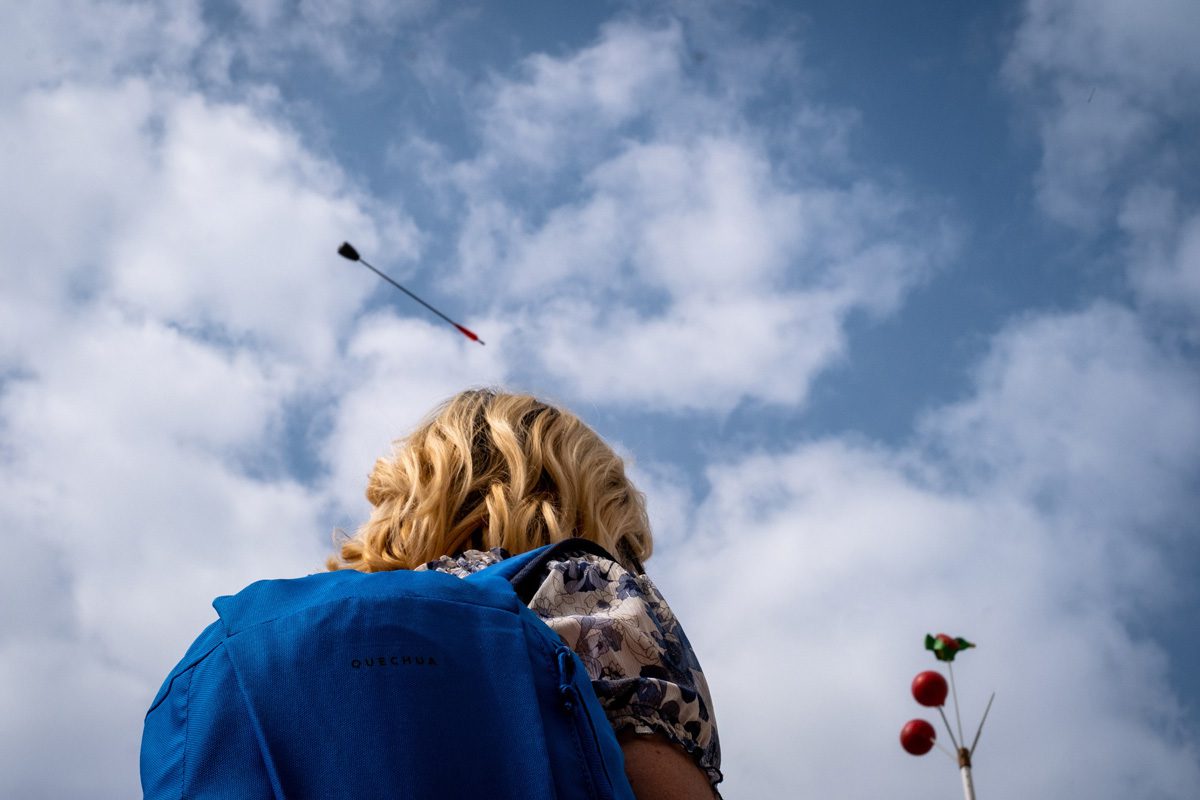
In Belgium, the Tocatì programme involves multiple actors through the ludodiversity programme initiated by Sportimonium in Flanders. The initiative includes a research centre, a sports museum and a theme park. In the framework of the “cultivating ludodiversity programme”, Sportimonium collaborates with the Flemish Federation of Traditional Games (Vlaamse Traditionele Sporten – VlaS), which acts as an umbrella federating 22 traditional sports communities in the Flanders region. The Belgian contribution is based on the support gained from the experience in safeguarding traditional games of the last decades, represented by Sportimonium and endorsed by the Flemish government. Sportimonium and other Flemish ICH accredited NGOs have decided to participate in the work on sharing good practices and experiences of safeguarding in international networking processes, as well as in the work to be carried out for inclusion in the UNESCO register dedicated to this objective. The current coordination process in the Tocatí Programme is based on preliminary phases of exchange and cooperation in previous decades. In fact, AGA and Sportimonium have been collaborating since 2007: Sportimonium participates in the Tocatí events, while AGA participates in the formal meetings at Sportimonium in Belgium. The Flemish Federation of Traditional Games – VlaS has been involved together with Faro, the Flemish interface for cultural heritage, and Tapis Plein (now Werkplaats immaterieel erfgoed) in the design and implementation of the Tocatí programme and the Verona Protocol.
“There has been a fruitful collaboration and exchange with Tocatí over the years. The Tocatí programme, with its community-based approach, its inclusive and connective method in a spirit of cooperation, fits perfectly into the policy and philosophy of Sportimonium. That is why Sportimonium fully supports the nomination file and will continue to do so.”
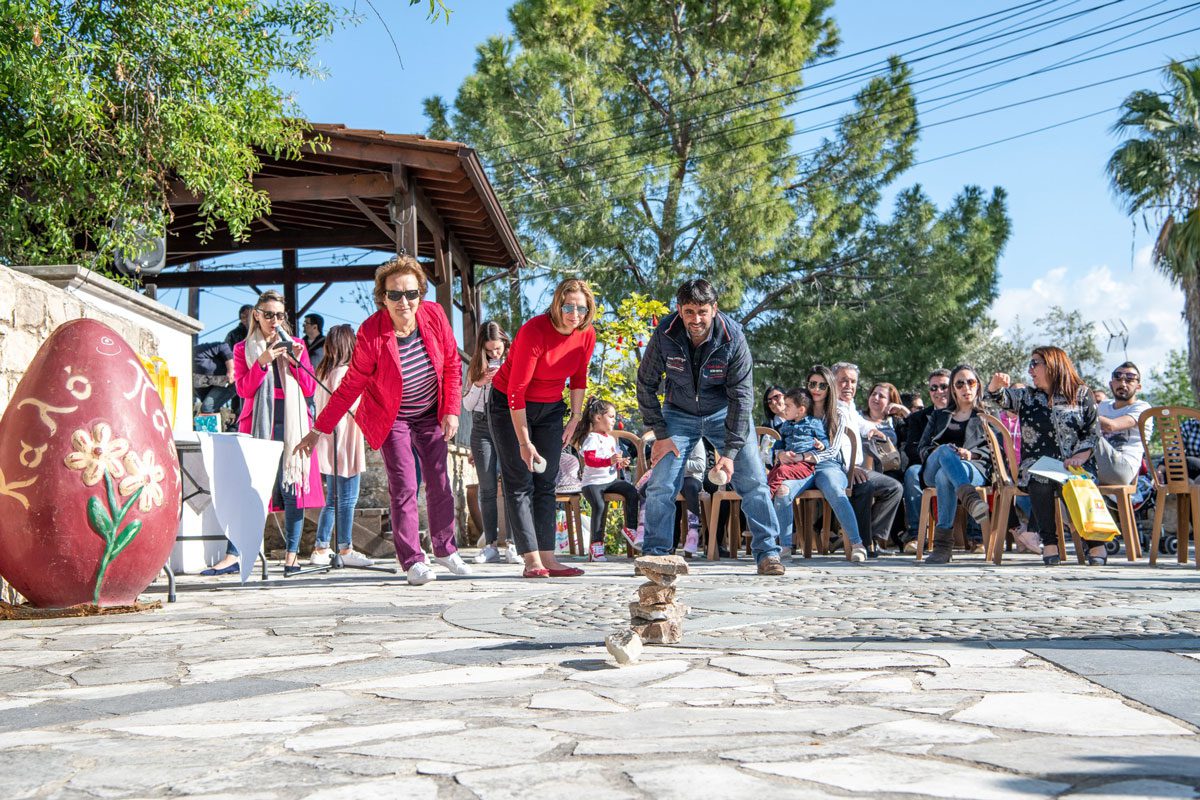
The Folklore Association of KTIMA of Cyprus strongly supports the work and efforts of the Ancient Games Association (AGA) to include TOCATÌ in the Register of “Good Practices for the Safeguarding of the Intangible Cultural Heritage” of UNESCO. Since 2018, we have been given the opportunity to participate and contribute to the TOCATÌ festival. The fact that we have been active in promoting Traditional Sports and Games has given us the advantage of inclusion in the Verona Network. We believe that the Verona Network is a valuable network of associates and creates a strong relationship between associations and individuals committed to promoting tradition aiming to support Traditional Sports and Games through the TOCATÌ program and festival.
The activities carried out during TOCATÌ are all important and it is necessary for all those who participate to ensure their continuity in the future. The 19th edition of TOCATÌ was very important for us, as we were one of the guests of honor.
We participated in the following activities:
- KTIMA music group, in the opening ceremony at Castelvecchio, where the event was opened.
- Our team of players took part in the Lippa tournament and at the same time gave a demonstration of “Ligrin” to the audience encouraging everyone to play. Ligrin is a traditional game of Cyprus, which has many points in common with Lippa and is inscribed in the National List of Intangible Cultural Heritage of UNESCO, since 2017 by the Folklore Association of KTIMA.
- We were given the opportunity to provide our contribution during the UNESCO conference by sharing our experiences during the pandemic and how the activities related to intangible heritage were oriented in these particular circumstances.
- Members of our group in Cyprus, in association with the Paphos Nautical Club, were connected in live streaming with the AGA communication team and showed the navigation in the sea of our hometown, Paphos.
“In 2018 and 2019, Ktima Folklore Association was invited to participate in the Tocatì Festival in Verona, Italy. There we participated and presented our research on the traditional Easter Games of Cyprus. We also participated as a team in the round robin competition of the popular Italian game called “Lippa”. We also found it pleasant to note that the Italian game “tnit gris” is very similar to a traditional Cypriot game “Ligrin”. The Tocatì Festival was excellently organized in both these years and the participation of the audience was remarkable. Ktima signed the Verona Protocol in 2019, participating since 2018 in the international symposiums “Tocatì a shared heritage”.
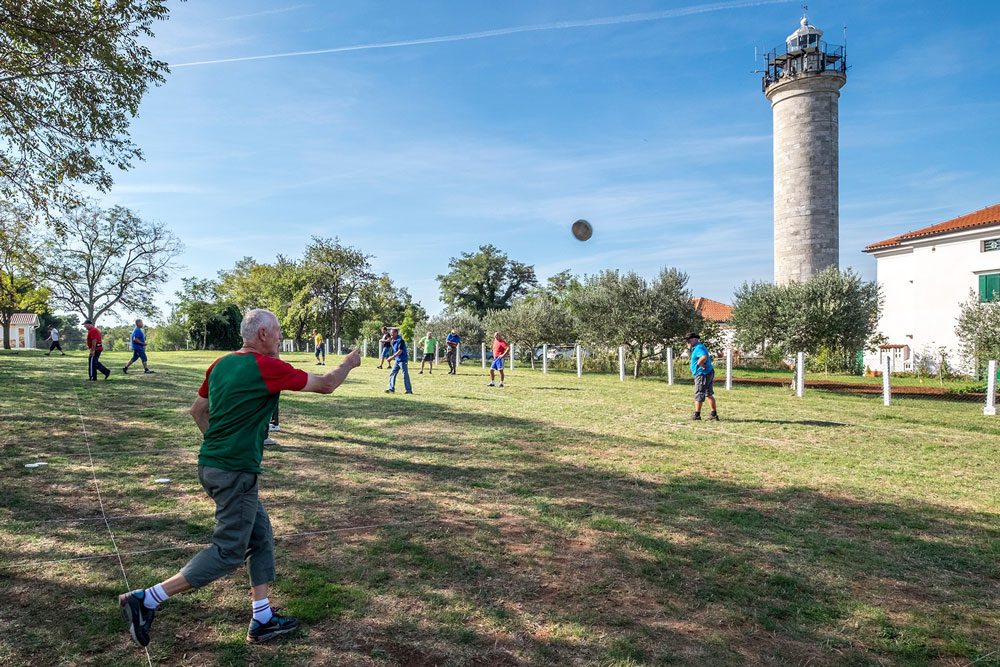
The Istrian Association Pljočke – IPS, was founded in 2011 and has been working since the beginning on the preservation, transmission, documentation and promotion of the traditional game of pljočke. IPS is the initiator of the initiative for the recognition of the game as intangible cultural heritage and, according to the decision of the Ministry of Culture and Media of the Republic of Croatia, its manager.
“We share the idea of promoting Tocatì as a laboratory of creative forms, especially synergy and dialogue between citizens and as a tool for social inclusion and cultural diversity”.
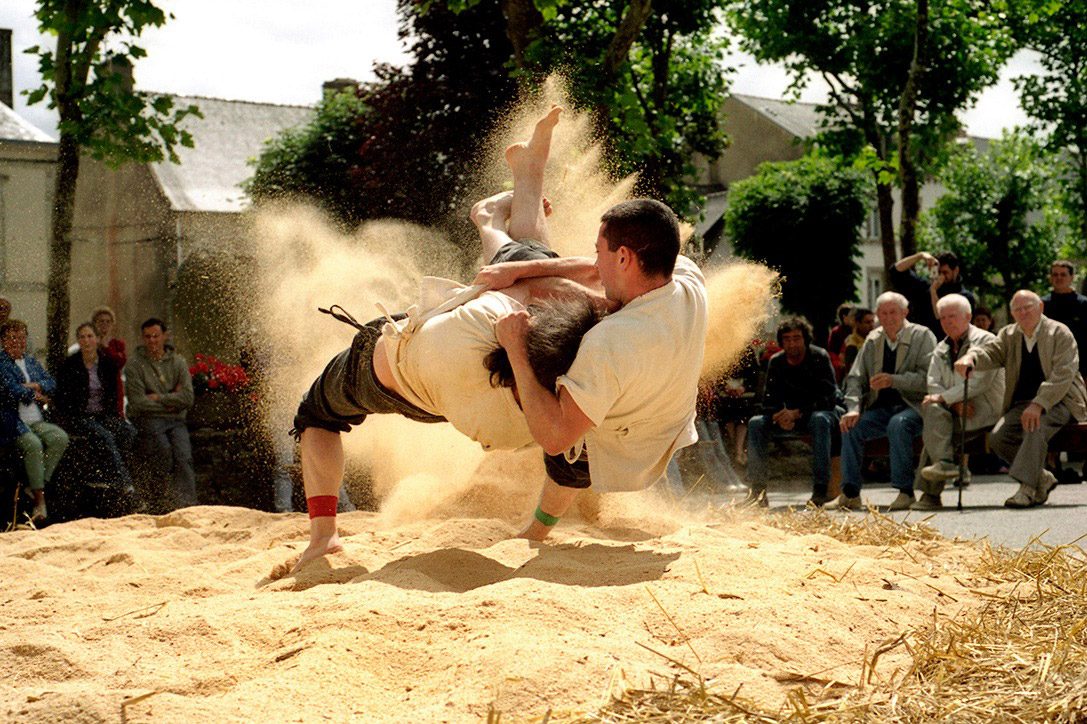
The FALSAB Confederation (Confederation of Traditional Games and Sports of Brittany) was created in March 1930 with the aim of promoting Breton games (boules, shuffleboard, skittles and power games) at the regional, national and international levels. It supports the members of its network in the development of various disciplines. To date, 95 practices have been identified in Brittany. To carry out its promotional mission, the Confederation develops educational, tourism and sports projects. It is also a publishing house and can therefore publish works in this field.
The Confederation is a member of several international networks (AEJeST, ITSGA, TAFISA) and regional networks in the field of sport, culture, intangible heritage (CROS Bretagne, Cultural Council of Brittany, Bretagne Culture Diversité, etc.). The Confederation participates in meetings and exchanges with other players in France and Europe.
“She went, of course, in September 2019 to Verona, to participate in the Tocatì where the invited region was Brittany. This participation made it possible to discover the diversity of Italian games and to introduce Italians, among other things, to Breton diversity. It was a wonderful moment of exchange. In the world of games, the language barrier is not a problem, gestures are enough. And that is why learning is very rapid.”
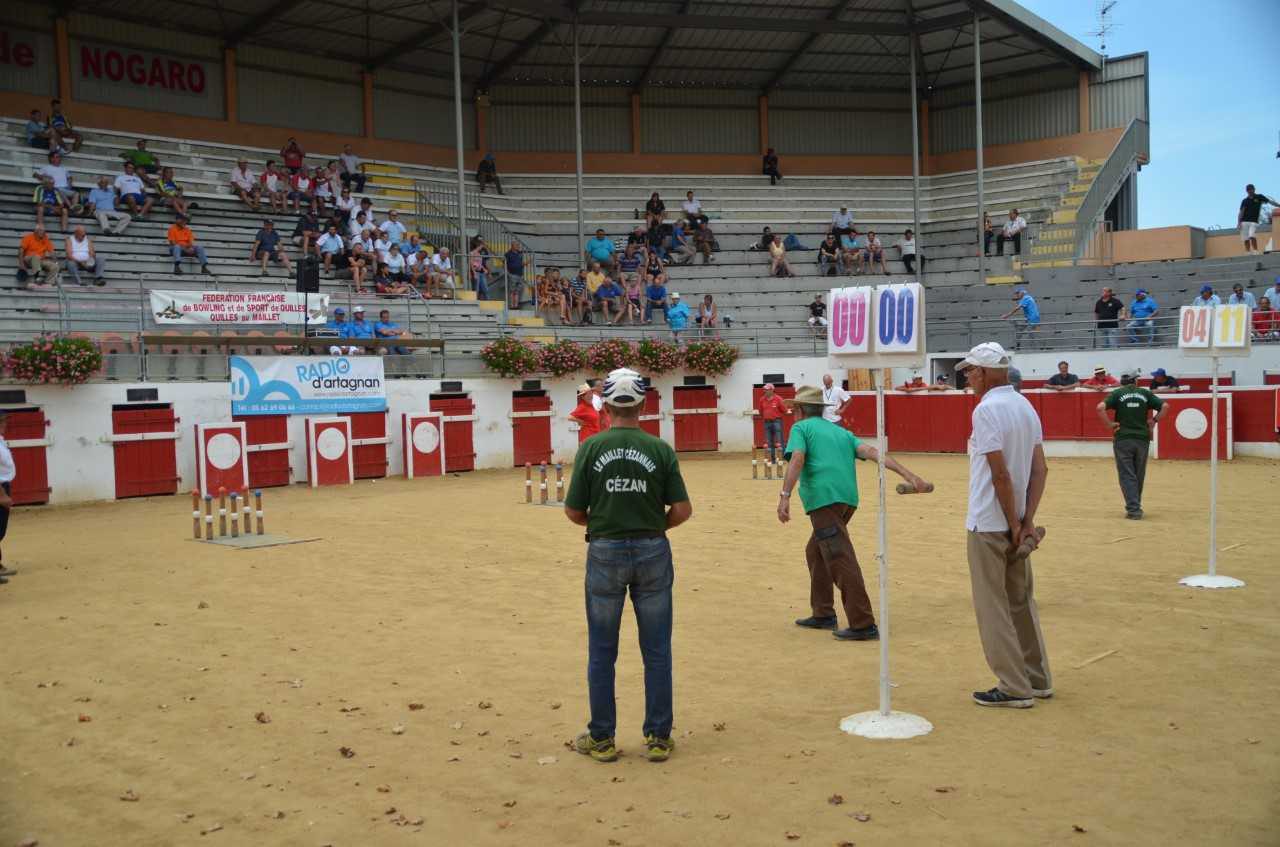
Long played in the Gers and Landes countryside, this game was banned by decision of the prefecture in 1956. Faced with the importance of the stakes and the resulting failures, the prefect had to take drastic measures. It was therefore necessary to obtain an exceptional authorization to revive this game in 1972. Since then, “Quilles au maillet” has experienced exceptional growth in the Gers and Landes and its practice now extends to the Haute-Garonne and Aveyron. In 1992, the “Quilles au maillet” section joined the current French Bowling and Sports Bowling Federation and became the eighth traditional discipline with 6, 8 and 9 “Quilles”.
“In our villages, practicing Quilles à Mallet is more than just practicing sports. It is placing oneself in the continuity of our ancestors or placing oneself in the cultural framework of the country of the region of the entity that welcomes us, it is a factor of integration, a human factor, of emancipation and of sociality”.
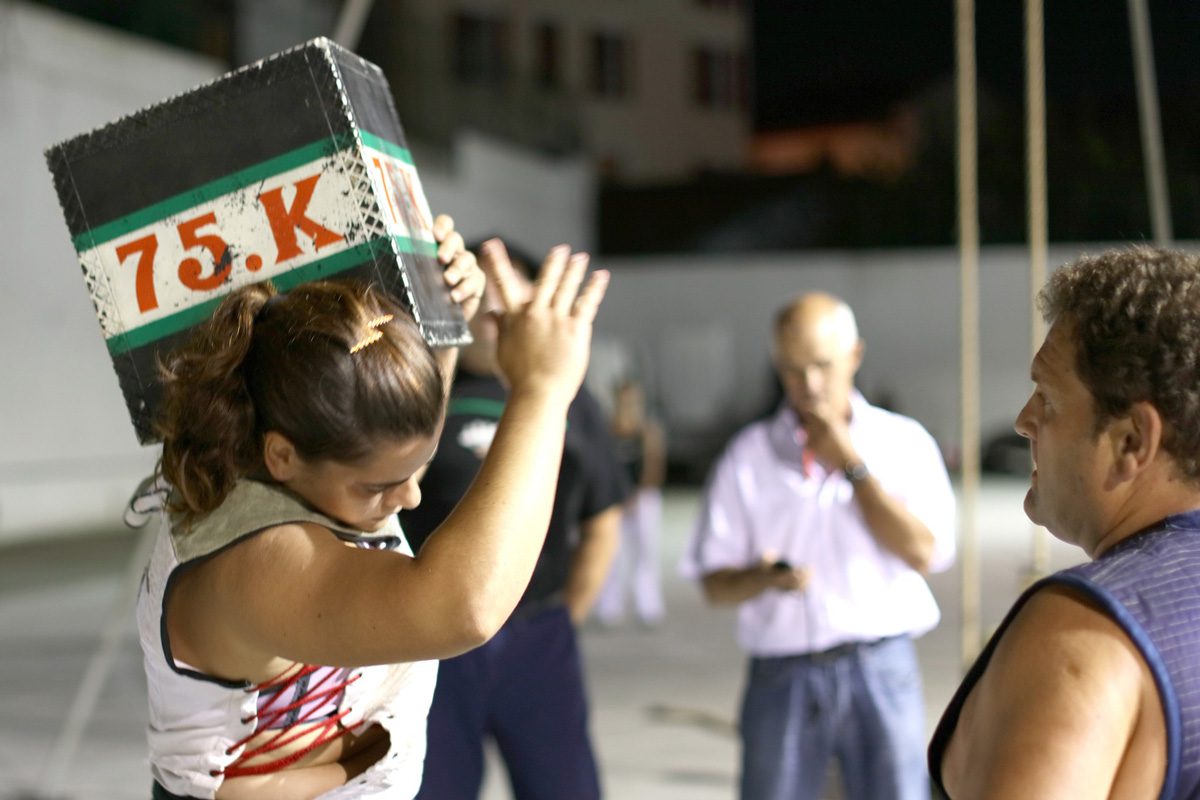
Basque traditional games and sports are practices deeply rooted in our traditions. The first written traces date back to the 15th century. Our games are closely linked to the rural world and ancient crafts, to masonry, logging, transport of materials, mining, etc. These games are common to all Basques living in France, Spain and the diaspora, governed by a single regulation. They are subject to provincial championships and, at a higher level, to the Basque Country Championship composed of all its historical territories.
For more than a decade, these games, often exclusively for men, have been open to schools, for girls and boys, and so today there are women’s championships. Bidasoako Txaranga was created in 1980, composed from the beginning of members from all over the Bidasoa basin, regardless of their nationality or origin. They bring together volunteer members to strengthen the culture in general, the one closest to us, to experience our linguistic and cultural differences together, within the framework and spirit of the right of association.
Music, songs, dances, bell ringers (the Joaldunak), traditional games and sports have been our reality and our DNA for 42 years. The Joaldunak “those who have the bells”, are mythical characters of the Basque carnival, their origin dates back to the pagan period. Dressed in a short skirt and a pointed hat decorated with numerous ribbons, they carry two enormous bells attached to the lower part of their backs. They ring them rhythmically, maintaining a uniform general step, while shaking a horsehair whip. Today, joaldunaks are one of the last remaining vestiges of pagan rites. Similarities can be found in many parts of Europe and the world.
The meeting with AGA and the TOCATÌ festival was an opportunity to show, in this unparalleled festival, the riches of our cultural heritage, but also to share those of our partners. A beautiful adventure that we want to continue together.
“Tocatì is our common home, a place of resources and inspiration, where we belong, a true “community of communities”. These are all reasons that motivate our participation in a multinational candidacy, the ideal framework to affirm, in the future, the (institutional) support for common safeguard projects, which strengthen our approach to this necessary safeguard of our cultural diversity.”